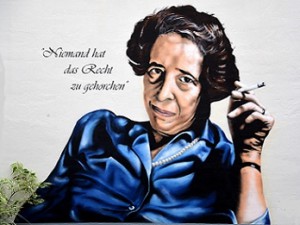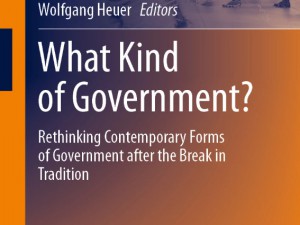Vlasta Jalušič, PhD
Researcher
Although in times considered normal the quest for truth is not essential in political space; today telling the truth and disclosing facts has become a political act par excellence. As such, the quest for truth is now where the key political battle is being fought. This is not a good sign: It shows that we live in difficult, dark times.
– Vlasta Jalušič, interview in Mladina weekley 2020
Vlasta Jalušič is a senior researcher and one of the founders of the Peace Institute. She has degrees in political science, sociology and fine arts. She earned her PhD in 1996 from the University of Vienna. She is the author of several books, articles, and chapters in books on the women’s movement and feminism, gender and political theory, violence, war and collective crime – and a prominent connoisseur and translator of Hannah Arendt’s works. She was teaching courses and gave lectures at several universities including the Central European University in Budapest, University Centre for Peace Studies in Austria, University of Sarajevo, University of Brighton, Autonomous University Madrid, UC Irvine and Princeton University. She was a guest researcher at Free University of Berlin and at the Institute of Human Sciences in Vienna. Currently she lectures on Nationalisms, racisms and the politics of gender at the University of Ljubljana.
A long-time activist against discrimination and gender inequality, she has been involved in international feminist networks and human rights activities for years. Apart from her research work she also carried out several development projects, co-founded a women’s centre in a poor neighbourhood in Kigali, edited two documentary films, and is active in the field of visual arts – painting.
Featured project
-

The Break in Tradition: Hannah Arendt and Conceptual Change
This project uses Hannah Arendt’s thesis of the “break of tradition” and the consequences of this break for political theory.
Projects
- Motivations, experiences and consequences of returns and readmissions policy: revealing and developing effective alternatives (MORE)
- Research network FRANET
- City for Everybody – Building Responsible Action for Inclusive Local Communities (CIFER)
- Hate speech in contemporary conceptualizations of nationalism, racism, gender and migration
- Equality and human rights in times of global governance
- The Break in Tradition: Hannah Arendt and Conceptual Change
- Migrant Children and Communities in a Transforming Europe (MICREATE)
- Reducing and eliminating discrimination based on ethnicity, ‘race’, nationality and/or religion
- VICATIS – Victim-centered Approach to Improving Support Services
- Education and economic empowerment of vulnerable groups of women in Rwanda
- Developing bystander responses to sexual harassment among young people
- Crimmigration between Human Rights and Surveillance
- National Integration Evaluation Mechanism (NIEM). Measuring and improving integration of beneficiaries of international protection
- Obtaining Political Equality by New Names – OPENN
- CEINAV – Cultural Encounters in Interventions Against Violence (Violence, Inequality, and Human Rights)
- Seminar for Political Theory
- Nyamirambo Women’s Center – Women for Women
- SIAPREM – Support for Intersectional Approach in Antidiscrimination Programs for Roma, Migrants and Elderly
- NWC sustainability – socioeconomic engagement and poverty reduction in local community Nyamirambo in Kigali
- Empowering Nyamirambo Women’s Center
- PRIMTS – Prospects for Integration of Migrants from »Third Countries« and their Labour Market Situations: Towards Policies and Action
- Violent Intersections: Dynamics of Societal and Political Elements of Collective Violence and Mass Crimes and Their Consequences – Yugoslav and Rwandan Case
- Twiyubacke Nyamirambo – Establishing Women’s Self-empowerment Association of Nyamirambo – Kigali
- QUING: Quality in Gender+ Equality Policies
- Politics and Power in Times of Terror: Thinking with Hannah Arendt
- Between Past and Future: What Means Political Thinking Today?
- Nation-State and Xenophobia
- MAGEEQ: Policy Frames and Implementation Problems: the Case of Gender Mainstreaming
- Gender Mainstreaming: Policy Frames and Implementation Problems
- The Slovene Model of Migration Policy: Perspectives and Potentials for a Country on the Schengen Periphery
- Stability Pact for South Eastern Europe (evaluation study)
- Contemporary Citizenship: Politics of Exclusion and Inclusion
- Contemporary Citizenship the Politics of Exclusion and Inclusion (continuation of the project from 2002)
- The Profiles of Women’s Magazines
- Racism and Xenophobia in Post-Socialism
- Prospects for Gender Equality Politics in Central and Eastern Europe
Featured publication
-

Book / What Kind of Government? Rethinking Contemporary Forms of Government after the Break in Tradition
Springer has published the book What kind of government? Rethinking Contemporary Forms of Government after the Break in Tradition, edited by Vlasta Jalušič and Wolfgang Heuer.
Publications
- Book / What Kind of Government? Rethinking Contemporary Forms of Government after the Break in Tradition
- Report / Building Responsible Action for Inclusive Local Communities, National report – Slovenia
- Article Whose children? The EU and Member States’ integration policies in education
- A set of thematic scientific articles ‘Politics and Action’
- Chapter What Are the Problems? Reception Communities in the EU Environment
- Article A paradigm shift framed by a crisis: recent debates on immigration and integration in six EU countries
- Equality for Whom? Obstacles To Women’s Access to Local Government in Slovenia, article in Teorija in Praksa
- Papers on Measures Against Violence
- Report on the evaluation of the integration of beneficiaries of international protection, Slovenia 2016
- Criminalization of migration, Thematic cluster in Dve domovini / Two Homelands
- The Disaster of European Refugee Policy. Perspectives from the “Balkan Route”
- Razor-Wired. Reflections on Migrant Movements through Slovenia in 2015
- Racism: A Divided World, thematic issue of the ČKZ
- War and Peace. Reflections of the Last Twenty Years
- The Door is not Completely Open (They Need to be Pushed in Order to Open)
- Evil of Thoughtlessness. Arendtian Exercises in Understanding Post-totalitarian Times and Collective Crimes
- Women’s Human Rights. Inroductory Notes and Documents
- Contemporary Citizenship: The Politics of Exclusion and Inclusion II.
- The Erased. Organized Innocence and the Politics of Exclusion
- Women – Politics – Equal Oportunities. Prospects for Gender Equality Politics in Central and Eastern Europe
